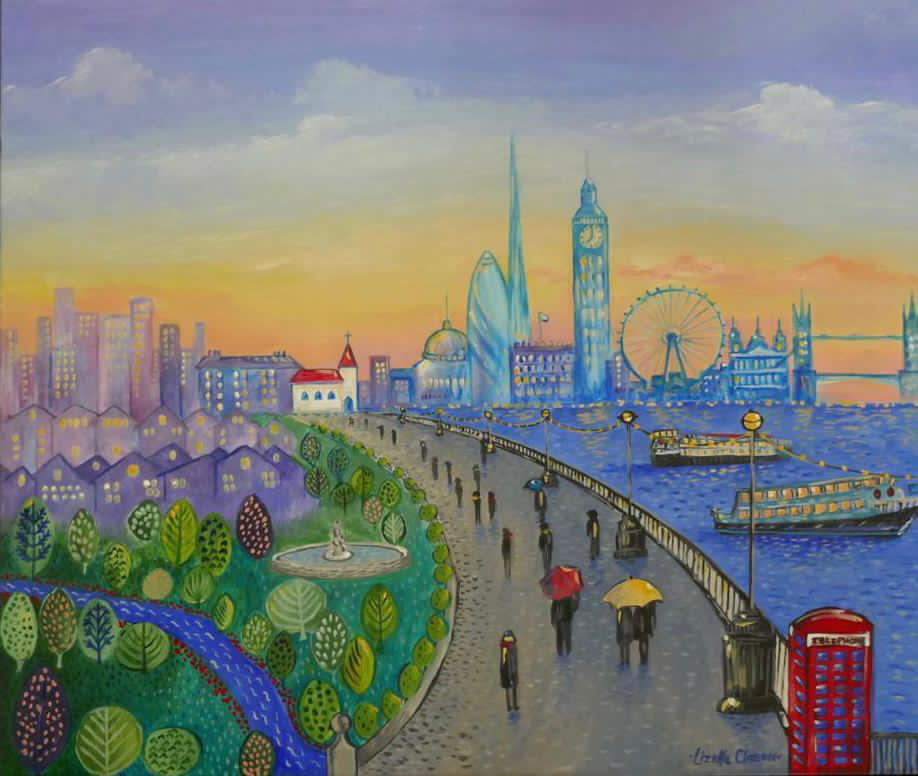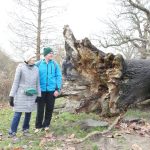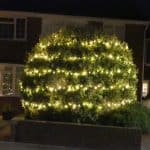A beautiful bright, yet faint, almost half-hearted winter sun is shining outside. But we here in England are all too grateful for every ray of sunshine this time of year. We are excited about the upcoming Christmas; we are more than ever looking forward to the family festival because the world has experienced an epoch with 65 million coronavirus infections and 1,5 million deaths. Here in the UK, the infection numbers are about 1,7 million with 60 000 deaths. It’s the highest in Europe. Worldwide, one in every 43 people who got the infection died. In the UK, one in every 27 people died from the infection. The United Nations Economic and Social Council describes the effects of the pandemic as follows: “We are facing a global health crisis unlike any in the 75-year history of the United Nations – one that is killing people, spreading human suffering and upending people’s lives. But this is much more than a health crisis. It is a human, economic and social crisis.”
Our first lockdown was imposed on 27 March 2020 and lasted until deep into June. It was accompanied by a glorious spring, the driest and sunniest in years. The sudden, concomitant silence and tranquillity in this densely populated, busy country was almost therapeutic. The whole world, with three billion people in lockdown, came to a sudden halt. Noise and pollution almost disappeared in the blink of an eye. The absence of commuters and visitors suddenly turned London and other cities into ghost towns. Away from the big cities, people enjoyed and appreciated their gardens more than ever, and those who did not have gardens could visit public parks at least once a day.
But the peace was deceptive, for everywhere elderly and vulnerable people died in large numbers. The medical services and hospitals in many countries groaned under the pressure of the COVID-19 victims, especially in some European countries like Italy and Spain. But it was not just COVID-19 victims who experienced oxygen deprivation; the tourism and entertainment sector were also suffocating and will take a very long time to recover.
The coronavirus has changed the work-from-home phenomenon from a privilege to a necessity. Time Magazine described it this way: “The coronavirus outbreak has become the world’s largest work-from-home experiment. Thanks to the coronavirus outbreak, working from home is no longer a privilege; it’s a necessity. While factories, shops, hotels and restaurants are warning about plunging foot traffic that is transforming city centres into ghost towns, behind the closed doors of apartments and suburban homes, thousands of businesses are trying to figure out how to stay operational in a virtual world.”
The second lockdown here was from 5 November to 2 December 2020, and afterwards, we were divided into tiers (levels or divisions). In the part where we live, the measures are the strictest, and where my daughter lives, it is the lightest.
This virus year has also drastically changed our family’s work life. At the dental practice I now only work part-time because we share a waiting room and consequently take turns to work. Our three children became part of the reality of working from home. They are in three completely different industries: Rene is a textile designer for Debenhams, a British chain store group; Christiaan is a chartered accountant; and Simon is a mechanical engineer in the defence industry.
Rene had to keep in mind that Debenhams’ might close down. After many years of dreaming, she decided it was the right time to start her own online business. She also started lecturing art through the University of the Arts London to inspire young people to realise their creative dreams. Here is one of her beautiful silk scarves.
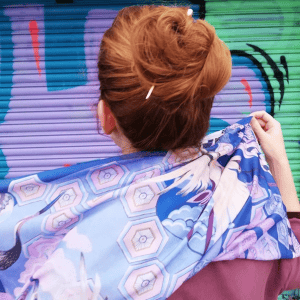
The virus crisis has forced us back to basic values: to enjoy your family and friends and to discover and appreciate your immediate environment.
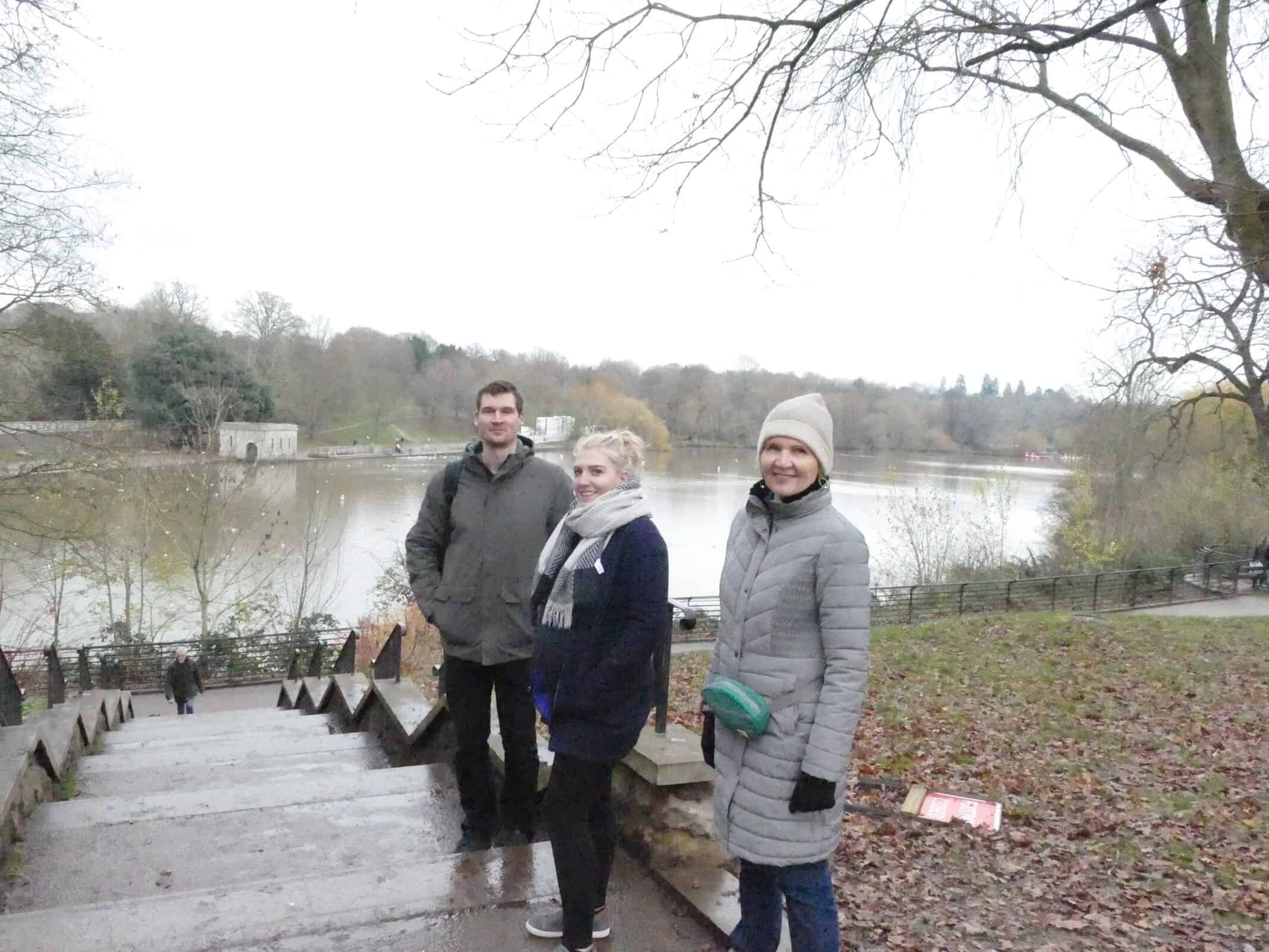
Because the regulations restrict us, we as a family had to be content with short meetings in parks. The top photo is of Christiaan, Nicole and Mariaan in a large park in the town of Maidstone here near us.
Our friend and fellow South African, Suzette Datema, convey the emotions of this time in her paintings. This one is about white magic birds carrying away the masks.
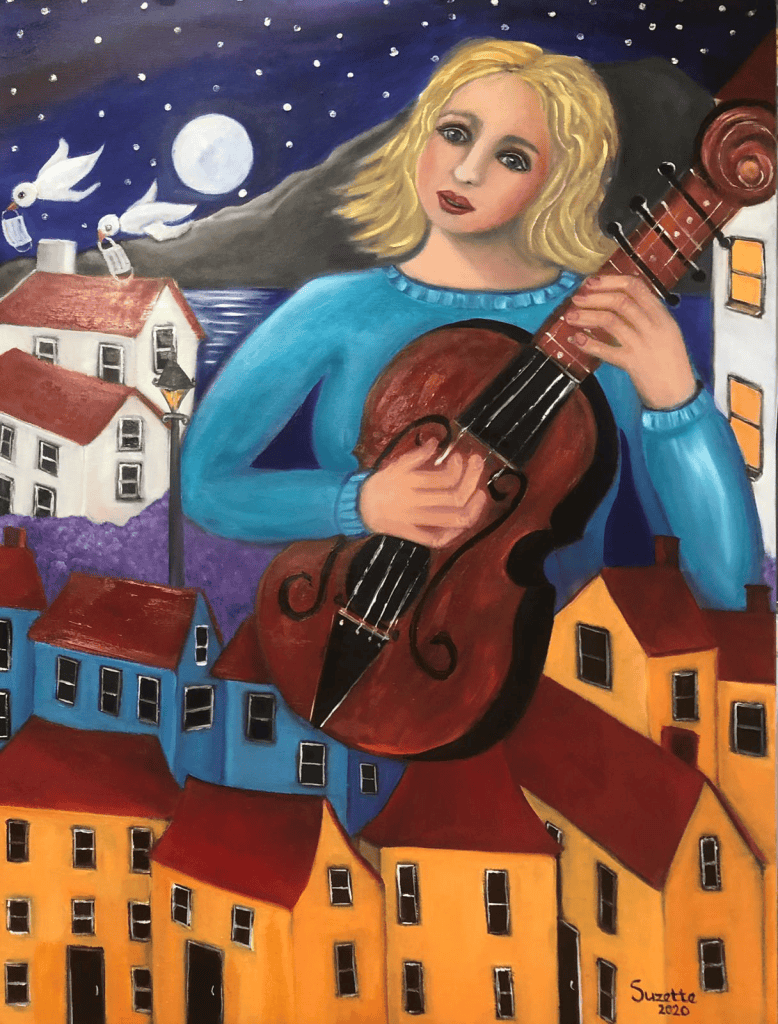
The first Christmas tradition we enjoy every year is the wonderful Christmas carol service, but this year there was no ordinary service or warm-hearted singing in the church hall or having a good time together in an intimate village hall. All the London wards tuned in to a joint Christmas carol service that kicked off with Silent Night, played on a harmonica by someone in the Bushveld, followed by beautiful songs like Requiem: Pie Jesu Domine. We need the Christmas message and the accompanying family celebration even more than during other, ordinary years. As Christians, we have the consolation that we know who is in charge, but we still need the reassurance.
Here is Lizelle Clasen’s beautiful scene on our Christmas calendar; she is the wife of our pastor, Ferdie.
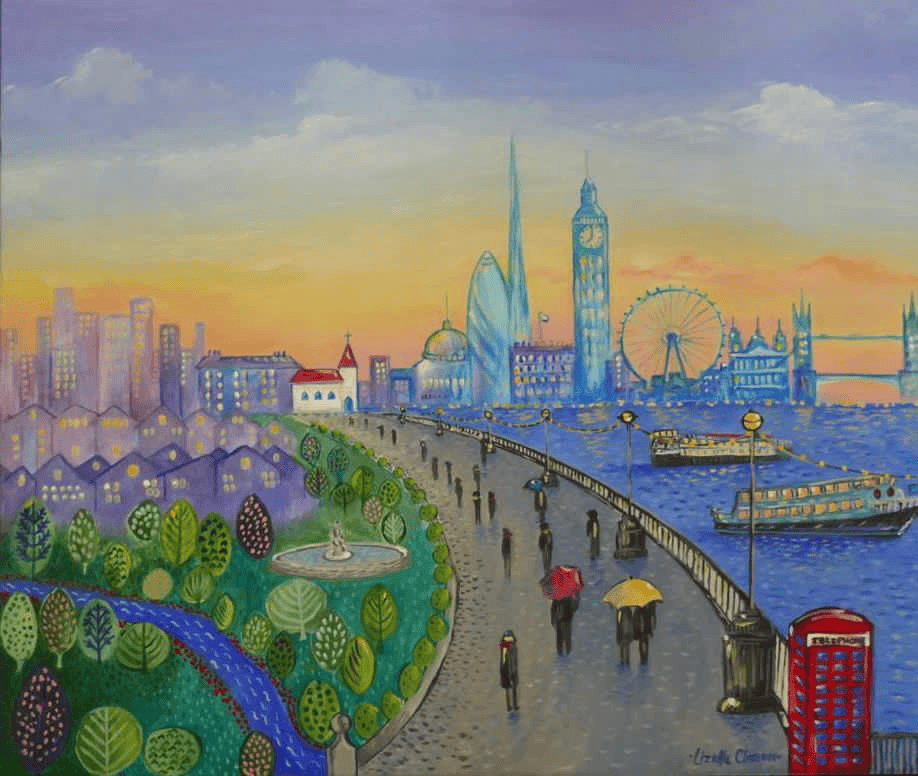
Because we have seen so little of each other these past few months, we are very much looking forward to spending this Christmas with our family only.
Greetings from England
Pieter de Lange
Share on
Latest articles



